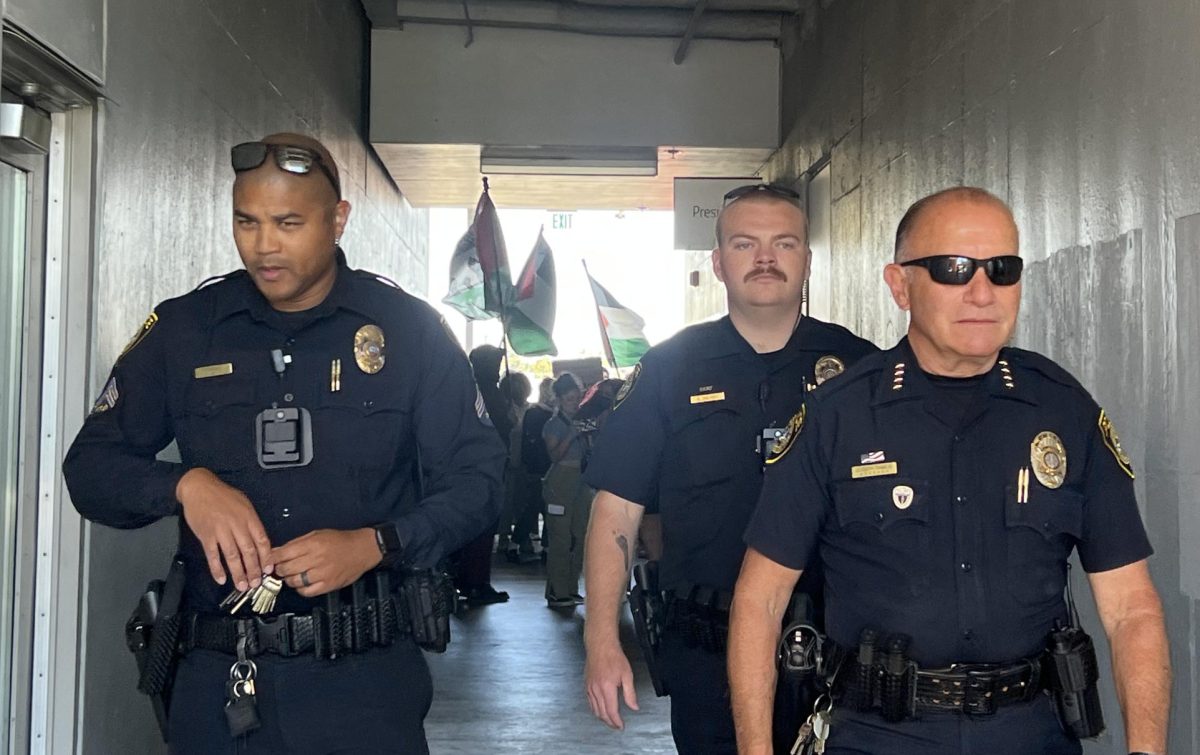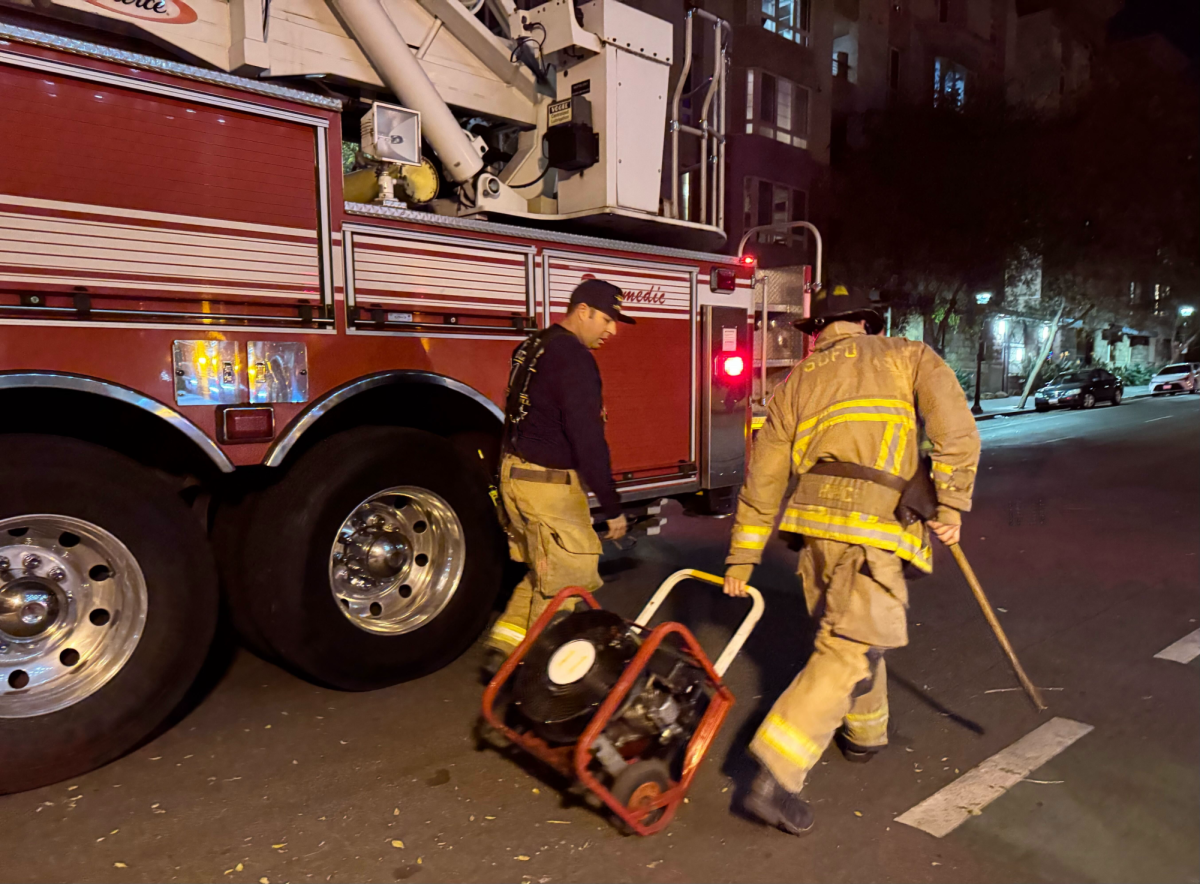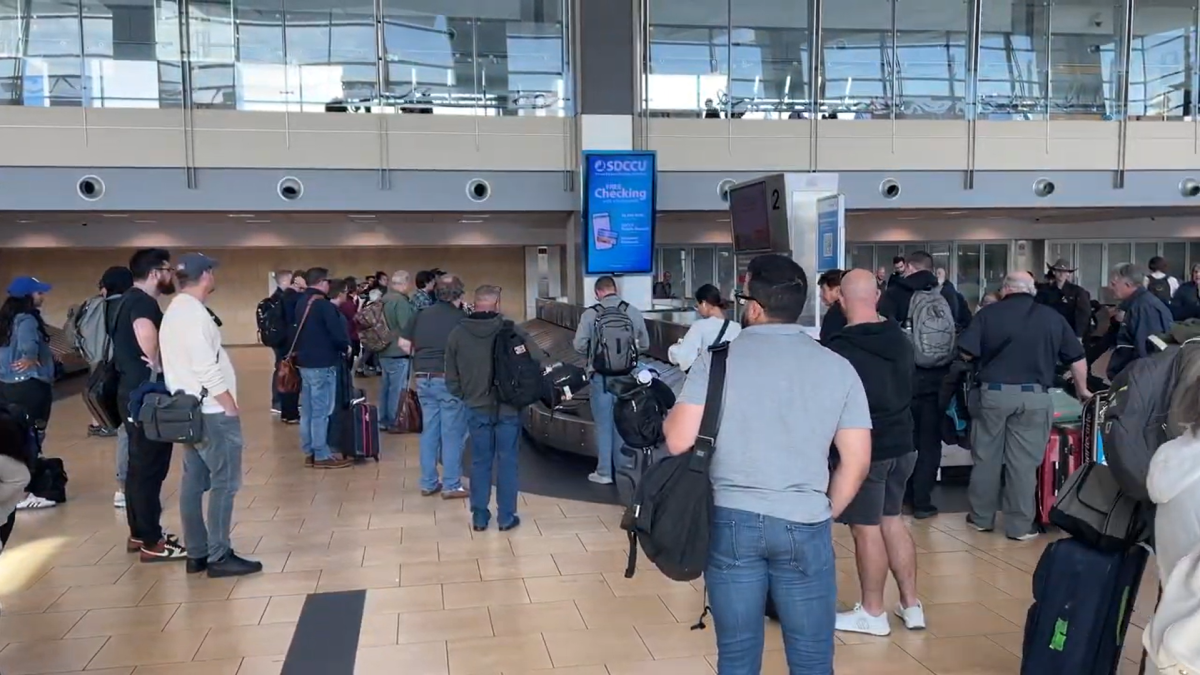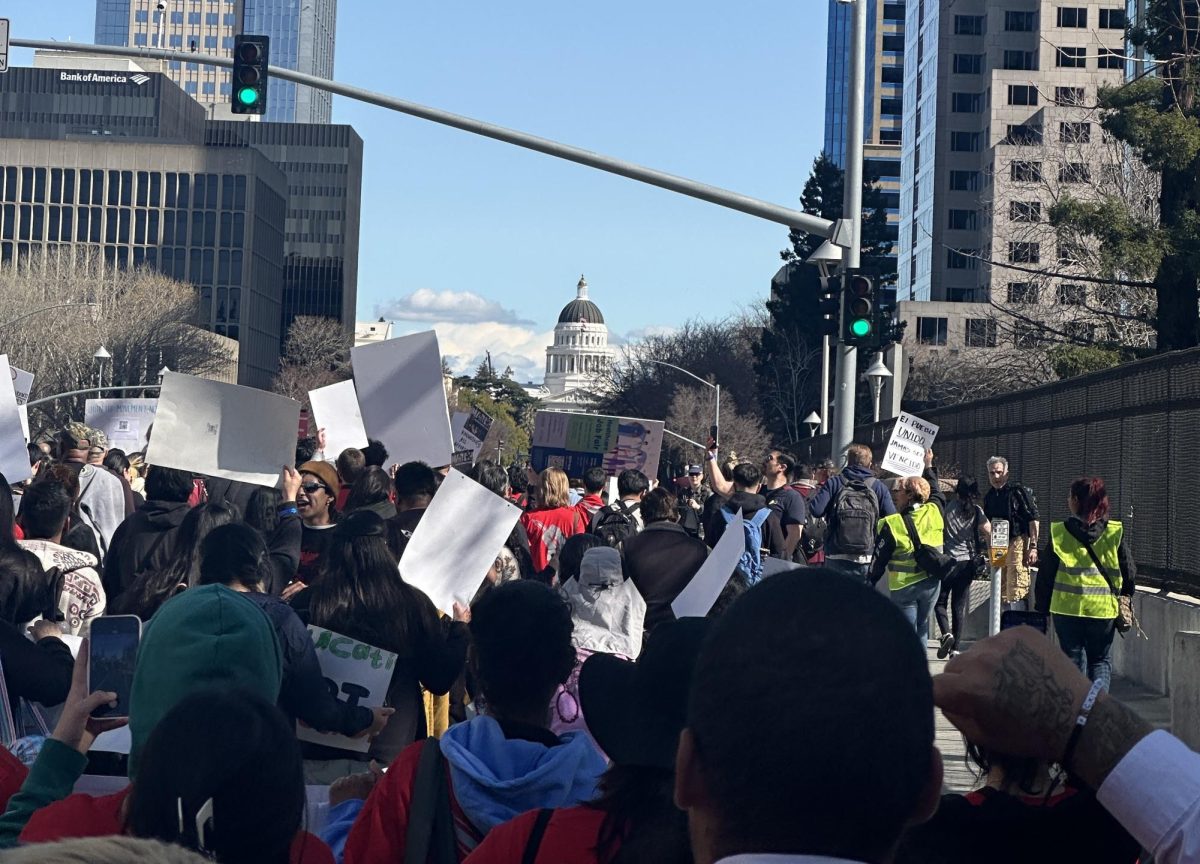More than 100 people marched silently from City College to the district attorney’s downtown office on Dec. 9 to protest the handling of the Diana Gonzalez case.
Students and faculty members joined friends and family of Gonzalez for the march. Most of the group stayed to chant and cheer in support when Gonzalez’s immediate family entered the building and met with a representative of the district attorney.
A flyer said the march aimed to “remind the DA that we want justice for Diana and assistance for her family.”
On Oct. 12, Gonzalez was murdered at City College. Police suspect she was killed by her estranged husband, Armando Perez, who is believed to have fled to Mexico.
Three weeks before the killing, according to a police report she filed, Gonzalez was assaulted, abducted and raped by Perez, who was taken into custody but was released when the district attorney’s office declined to file charges.
Paul Levikow, communications director for the district attorney, said charges can only be filed when the office believes it can prove them — a threshold that was not reached for Gonzalez’s charges against Perez.
“Our analysis was there would have been an acquittal,” Levikow said. “I know that’s frustrating to the family.”
Beatriz Luna, Gonzalez’s cousin, said the only assistance the family is currently seeking is to help Gonzalez’s parents get grief counseling.
“As far as justice,” Luna said, “we want to see (Perez) behind bars.”
Soon after the march reached the district attorney’s office, Diana Gonzalez’s parents, her sister, and her infant daughter, Crystal, met with Patrick McGrath, a deputy chief of the family protection division. They were joined by Larissa Dorman, a political science professor who has advocated for the Gonzalez family.
“Today was a success,” Dorman said after the meeting, though she noted some shortfalls. She said McGrath acknowledged the family’s request for more consistent communication, for example, but he did not provide more details about the office’s earlier decisions in the case.
Marchers had carried signs with messages such as “We Are Diana” and “Speak Out Against Domestic Violence.” Many people wore somber, dark clothing, and some added touches of purple, a color associated with efforts to end domestic abuse.
“It’s very important for there to be some transparency around what happened with Diana,” English professor Patricia McGhee said. “If there’s a flaw in our system, we need to know that.”
Jeremy Olin, a student, wondered if enough resources were dedicated to apprehending domestic abusers.
“This is only one case in a million, but pursuit of a suspect is supposed to be the law,” Olin said.
Dorman said that with Perez at large, Gonzalez’s family moved from their home and still fears for their safety. She said the district attorney’s office had recently shifted the case from one attorney to another and the family’s calls were not being returned, adding to their distress.
District Attorney Bonnie Dumanis, in a statement forwarded by Levikow, extended condolences to Gonzalez’s family and friends.
“All of us in law enforcement are committed to bringing Diana’s murderer to justice,” Dumanis added, “and the DA’s office continues to stay in close contact with her family as that process moves forward.”
According to Levikow, the office works with families that need help with expenses such as burial costs. “We have a victim assistance program and we have advocates that help out the family in cases like this,” he said.
Luna said the district attorney’s office had provided help with the family’s moving expenses, but obtaining the compensation felt “almost like we were asking them to do us a favor.”
According to Luna, the office said Diana Gonzalez’s survivors — including her daughter — were considered “indirect victims,” which limited the assistance available to them.







